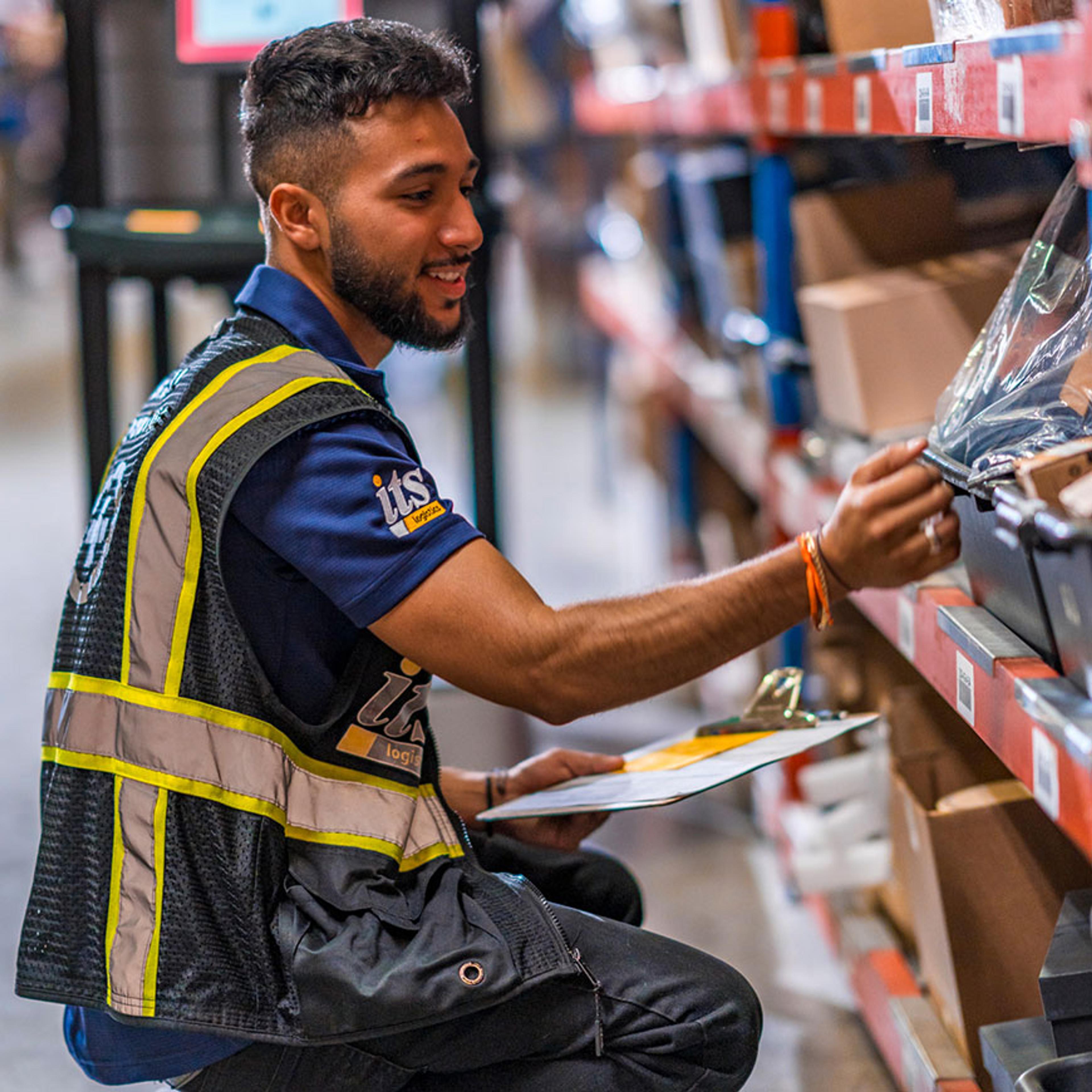Ecommerce Fulfillment

Ensuring Fast & Reliable Delivery
ITS Logistics has the technology and expertise to improve every aspect of your ecommerce order fulfillment process, including ecommerce dropshipping fulfillment, reverse logistics, and various Amazon shipping options. We offer ecommerce fulfillment services so you can meet customer expectations and focus on growing your business.
With our real-time, cloud-based order processing and inventory/order management system, you’ll have access to your data when and how you want it. Combined with our custom ecommerce fulfillment technology platform, FlexPick, and ERP integrations, you have total visibility to all transactions, inventory storage, and inventory levels, so you can spend less time looking for data and more time growing your ecommerce solutions and sales.
Customers are looking for an ecommerce retailer that offers fast and reliable ecommerce shipping, and we can help you meet that demand. ITS Logistics ecommerce order fulfillment provides two-day, overnight, and even same-day shipping to meet the expectations of even your most demanding customer. Combined with services such as order and shipping email confirmations, branded and custom packaging, gift wrapping, kitting, and more, ITS Logistics order fulfillment will help you impress and retain your valuable customers and increase overall customer satisfaction.
At ITS, we know how to meet Amazon’s strict fulfillment requirements for whichever option you choose—SFP, FBA, or FBM. We have the flexibility to help you scale your business, and we have the expertise to execute the specifications for any Amazon packages flawlessly.
Efficient ecommerce return management and reverse logistics are an essential part of any ecommerce business, and ITS Logistics provides process expertise and efficient solutions to maximize customer satisfaction and minimize the overall ecommerce fulfillment costs to your business.
With a focus on providing an easy and convenient process for the customer and thorough inspections of the returned items and accurate inventory management, ITS Logistics takes the headache out of ecommerce order returns— saving you money, providing a great customer experience, and increasing customer loyalty.

Inventory Management
Comprehensive strategies for any operation
With our real-time, cloud-based order processing and inventory management system, you’ll have access to your data 24/7/365. Combined with our custom ecommerce fulfillment technology platform, FlexPick, and ERP integrations, you have total visibility into all transactions and inventory levels.

One- to Two-Day Shipping
Meet expectations with two-day, overnight delivery, and same day shipping
Meet the expectations of even your most demanding customer. Combined with services such as order and shipping email confirmations, branded and custom packaging, gift wrapping, kitting, and more, ITS Logistics order fulfillment will help you impress and retain your valuable customers and increase overall customer satisfaction.

Reverse Logistics & Returns Management
Make the return experience easy for you and your customers
We analyze your volume of returns, identify any patterns with returned products, and continuously improve your solution. Without the processes in place to determine what to do with returned items, businesses can experience lost inventory and reduced profit by up to 30 percent.

Shopping Cart Integration
Customized, data-driven efficiency for every order
Drive efficiency between purchase and delivery by integrating warehouse management systems, accounting software, tracking software, and more. Our in-house development team can create a custom solution or integrate your current software with the top shopping cart platforms.

Subscription Box Fulfillment
Detailed customization designed with unparalleled customer service in mind
For subscription box fulfillment service, nothing matters more than product presentation. When you use our subscription box fulfillment services, we make sure to honor your specific, branded or custom packaging, and any other special instructions you have to help build your brand awareness.

Ecommerce Drop Shipping
Scale your business, without traditional growing pains
We can integrate with and drop ship for any large retailer, marketplace, or online store and design a supply chain solution specific to your business model and goals. Our in-house IT solutions also allow us to customize the order to specific retailer requirements.



